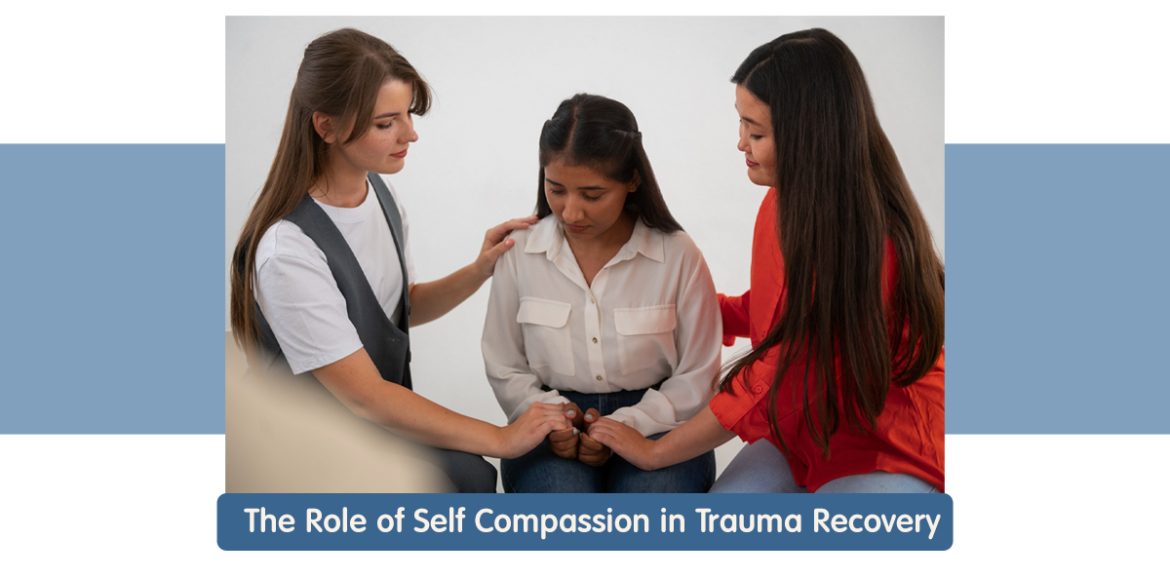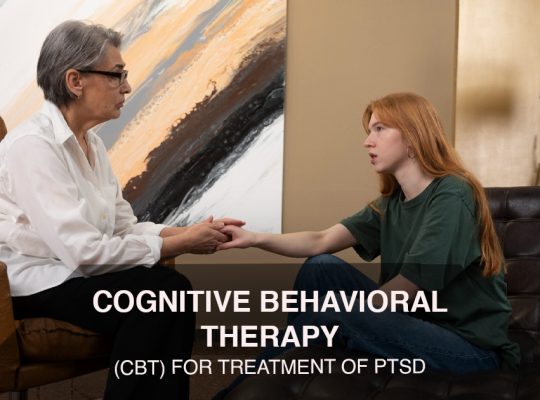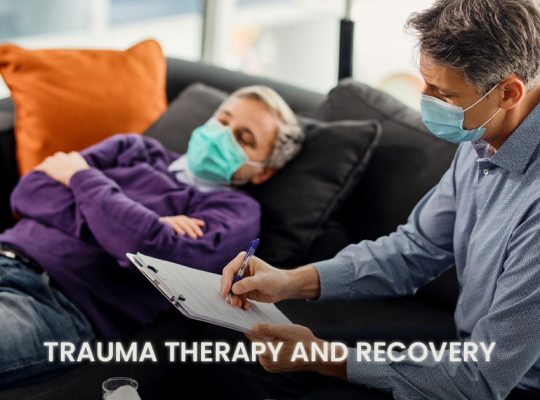Trauma doesn’t ask for permission. It crashes into your life and leaves behind shattered pieces—memories, beliefs, and patterns that can make everyday life feel overwhelming. For many trauma survivors, the path to healing is anything but linear. One day might feel full of hope, and the next might feel like you’re back at square one. What often makes the difference in that journey isn’t perfection or progress—it’s self-compassion.
At Austin Trauma Therapy Center (ATTC), we’ve seen firsthand how powerful self-compassion can be in trauma healing. It’s not just a buzzword or a feel-good phrase. It’s a skill—one that helps survivors gently confront pain without turning that pain into self-judgment.
Why Self-Compassion Matters in Trauma Recovery
After experiencing trauma, many people blame themselves. “Why didn’t I leave sooner?” “Why wasn’t I stronger?” These thoughts are common—and they’re heavy. Self-judgment feeds shame, and shame keeps you stuck.
That’s where self-compassion in trauma recovery comes in. It’s the practice of treating yourself with the same kindness and understanding you’d offer a close friend. Sounds simple, right? But for trauma survivors, it’s often one of the hardest things to do.
Here’s why it’s worth it:
- Reduces shame: Self-compassion quiets the voice that says “I’m broken” and replaces it with “I’m healing.”
- Builds emotional resilience: When you stop beating yourself up, you have more energy to actually deal with your emotions.
- Improves therapy outcomes: Research shows that those who practice self-compassion respond better to trauma-focused therapies like EMDR and CBT.
- Supports nervous system regulation: Kindness toward yourself helps bring your body out of fight-or-flight mode.
The Three Elements of Self-Compassion
According to Dr. Kristin Neff, self-compassion has three main parts. At ATTC, we often integrate these into our therapeutic work:
- Self-kindness vs. self-judgment
Trauma often leaves behind a harsh inner critic. Self-kindness means replacing that voice with gentleness. - Common humanity vs. isolation
Trauma can make you feel like you’re the only one struggling. Realizing that pain is part of the human experience helps ease that loneliness. - Mindfulness vs. over-identification
This is about noticing your emotions without drowning in them. You don’t have to deny your pain—but you don’t have to become it, either.
How ATTC Supports Self-Compassion in Therapy
At Austin Trauma Therapy Center, we understand that survivors of trauma come from all walks of life—and carry unique, complex stories. That’s why we tailor every approach to the individual. Whether you’re exploring trauma healing through EMDR, talk therapy, or somatic work, we incorporate self-compassion as a tool for emotional regulation and growth.
Here’s how it might show up in session:
- Guiding you to name and validate your feelings
- Helping you reframe harmful internal narratives
- Teaching body-based techniques that promote safety and calm
- Practicing compassionate self-talk during exposure or memory processing
- Creating rituals that affirm your progress, no matter how small
We also recognize the impact of systemic trauma, including racism, transphobia, xenophobia, and generational oppression. Our team stands firmly with BIPOC and LGBTQIA+ communities, offering trauma-informed care that is culturally responsive and justice-centered.
Everyday Ways to Practice Self-Compassion
Therapy is a powerful space to build self-compassion, but it doesn’t stop there. Here are some things you can do at home:
- Talk to yourself like someone you love: Would you call your best friend “weak” for having a panic attack? Of course not. You deserve that same softness.
- Create a safety statement: A short phrase like “I am safe now” or “It wasn’t my fault” can bring grounding during flashbacks.
- Allow imperfection: Healing isn’t about getting it “right.” It’s about showing up again and again, no matter how messy it feels.
- Rest without guilt: Sometimes the most radical act of self-love is taking a nap.
- Surround yourself with support: Community—whether online or in person—can reinforce compassion when your inner critic gets loud.
Why Self-Compassion Is a Revolution
Choosing to be kind to yourself after trauma is a radical act, especially in a culture that rewards productivity over presence. It pushes back against the shame that trauma tries to plant in your body. And it invites healing—not through pressure, but through patience.
At ATTC, we believe that every survivor deserves more than just coping tools. You deserve to feel whole again. Through evidence-based therapy and a commitment to justice and inclusion, we help clients build the skills to carry that wholeness with them—starting with self-compassion.
Frequently Asked Questions
Q: Can self-compassion really help with PTSD symptoms?
Yes. Studies show self-compassion lowers shame and anxiety, both of which can worsen PTSD symptoms.
Q: What if I don’t feel like I deserve compassion?
That’s common in trauma recovery. We’ll help you explore where that belief comes from and offer tools to shift it over time.
Q: Is self-compassion a substitute for therapy?
No, but it enhances therapy. Think of it as emotional fuel that supports deeper healing work.
The Bottom Line
If you’re ready to begin or continue your trauma recovery journey, we’re here for you. At Austin Trauma Therapy Center, our doors (virtual and in-person) are open to anyone seeking trauma healing with compassion at the center.
You’ve already survived the hardest part. Now it’s time to heal—on your terms, and with kindness.







